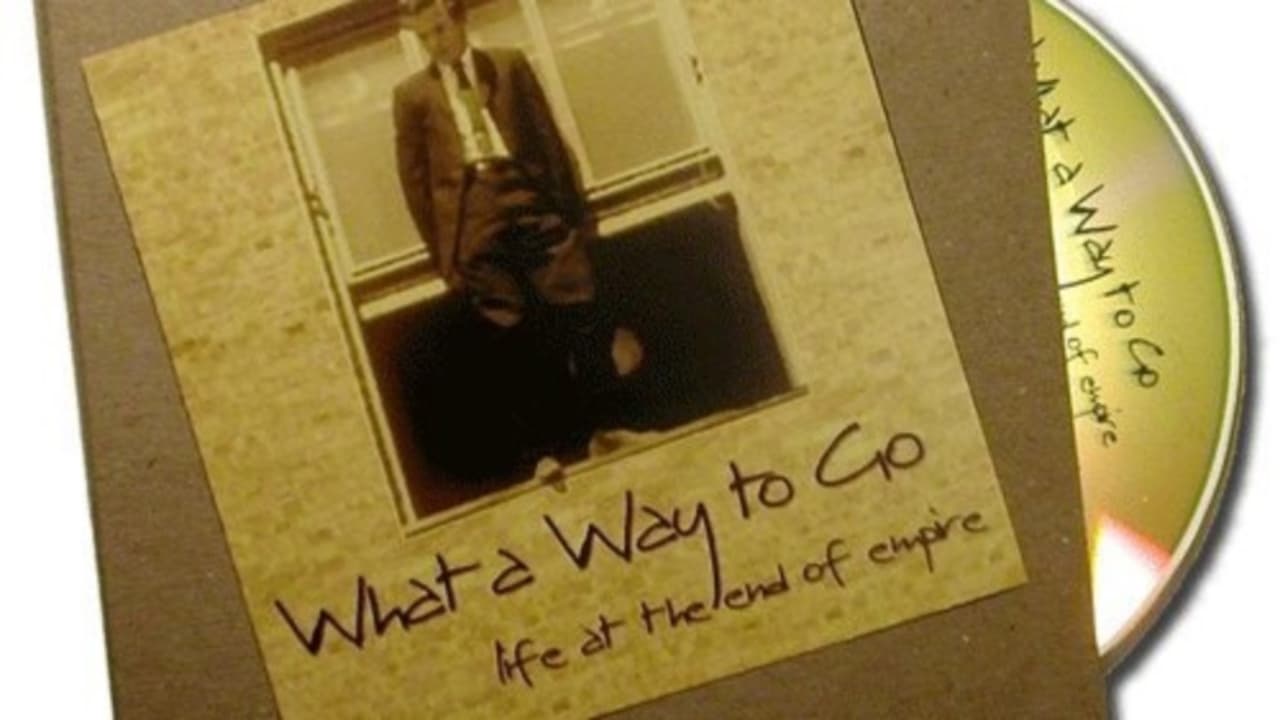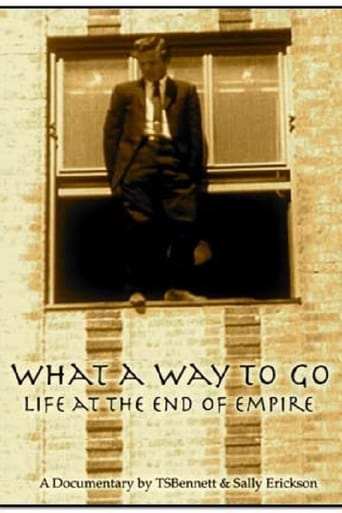



Too many fans seem to be blown away
Beautiful, moving film.
It's easily one of the freshest, sharpest and most enjoyable films of this year.
View MoreThis is one of the best movies I’ve seen in a very long time. You have to go and see this on the big screen.
View MoreThis film is tough to watch. It is information dense and the narrative is fast-paced throughout the two-hour length. Watching it by re-playing bits of it, pausing in-between to read about the people interviewed and the books they've written will take better part of an entire day. But it is that good. Even if you think you know about these issues inside out, you should still watch. I made the mistake of letting it sit on my computer for a long time. Even after starting to watch a couple of times, I lost interest after a few minutes as I was put off by the lack of pauses that allow you to assimilate what was just said and also because I did not find any new information in the first 20 min of it or so. It is only in my third attempt that I managed to watch it in full and realised that it goes much deeper than other films. The first 18-20 min is about the personal struggle of the film maker. The conflict that comes from trying to live an ordinary life with a back-of-the-mind awareness that at some level things are deeply wrong. It's the double life we all live, those of us who understand the severity and scale of these crises but do not know what to do about it. The next 40 min or so is about the crises, categorised here into peak oil, climate change, mass extinction and population overshoot. Then it goes deeper into the ancient origins of the problems, the part that was most revealing. It then explains how modern science and technology perpetrated the "fantasy of no limits", gave us a false sense of control, argued that technology is not neutral, and that technology fixes do not always work in the long run. There's much more. You'll have to watch it for yourself. A word of thanks to the film makers for making this documentary and making it available on YouTube.
View MoreThis doc just supports and solidifies what I already have learned, observed, researched, pondered, read, and realized for the last 30 years... And sadly, no, Jesus is not coming to save us! The only thing that keeps me from laughing and stating the proverbial "I told you so," is the fact I have a 6 1/2 year old son (who I love much more than Jesus), he breaks my heart with his love and concern for the planet already, asking and reminding me to recycle... while I know that unchecked population growth and capitalism will destroy what once was a unique and beautiful planet, and likely leave him a unpleasant future. We have only ourselves to blame...
View MoreI've seen a number of these "doomsayer" documentaries and I'm mostly in agreement that the human race is out of control and trashing nature to death. This one did a good job of outlining the major aspects of our predicament, but it lacked stunning examples to convince Joe Six Pack that the problems are severe enough to warrant the grim tone. It seemed to assume viewers were already advocates for sustainability, while at the same time acknowledging that most are too brainwashed by "Empire" to care. (As an aside, I've never seen the word "empire" used without "an," "the" or "our" preceding it; something about that annoys me.)I found about two thirds of the presentation solid and informative, but it strayed into preachy areas that were overwrought and repetitive, especially the "walkabout" segment toward the end. It kept seeming like a closing statement was made, then it cut back to more interview segments and the message got scattered. Also, some of the interviewees didn't exactly come across as ecology experts (e.g. artists), though they were on the right track. I'm more pragmatic than a Kumbaya type.When I watch these documentaries I'm looking for something that will sway the tiresome global warming & peak oil deniers, and leave no room for snide "tree hugger" remarks. We really have to get those people on board if there's hope of averting mass chaos. Skeptics of a finite Earth aren't all that bright, but they could be better convinced by irrefutable evidence vs. touchy-feely commentary, which this film lapsed into heavily at times. A lot of people simply lack the empathy to be concerned for nature, and they will only act out of self-interest. I can imagine this film being snickered at by them.To improve it, they could have trimmed the beginning and ending for a more concise message. Some of the interviewees were especially strong, and some could have been left out. I give it a 9 for thematics but a 5 overall for its repetition of New-Age mantras.
View MoreConceivably, WaWtG:LatEoE (or, "whatgulateoe") is the most important film of our time. As other reviewers comment, it is not necessarily the most well-crafted film. It isn't. The editing is flawed; the pacing, disjoint.What it is, however, is the most ruthlessly honest film ever put to cinematography. From the earnest poetically hushed script-writing and narrator delivery to the relentless, factual interviews with scientific luminaries, authors, and journalists, WaWtG:LatEoE weaves the sordid story of... collapse. From the weft of everyday intuition and despondency, it incrementally and with examined force unravels the mass predicaments of industrial civilization. In no order, these are:* Peak oil. Global oil production peaked at 74.87 mbpd (million barrels of oil per day) on July 11th, 2008 - our so-called "Peak Oil Day," in hindsight.* Climate change. (I don't believe we need to discuss this one...)* Biodiversity loss. Anthropogenic species extiction is roughly 10,000 times the background rate, at an estimated 100 species per day. By contrast, the sum number of distinct species on Earth is estimated at only 10,000,000 species. Do the math.* Human overpopulation. The human population is currently growing at 94,000,000 humans annually. Human population growth has obeyed an exponential curve for the past 13,000 years: the so-called "Holecene." Unfortunately for the human population, the Earth is a finite planet.* Economic depression. At the tail end of quarter one of 2010, gross sovereign debt of the United States of America is an estimated 87.3% of GDP. If you think this is a sustainable trajectory, I have a Nigerian banker who would like to speak with you.In sum, the prognosis is bleak. If the 20th century was the Age of Exuberance, the 21st century will, with all likelihood, be the Age of Consequences. And the unpaid debt on those consequences is coming due.Humbly yours, Cecil Curry [ http://raiazome.com ]
View More